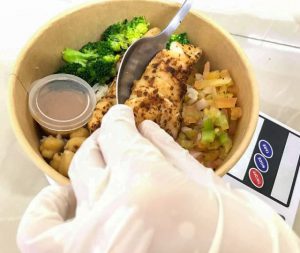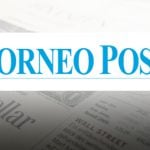Nutrition and dietetics students have always wondered why food service is an included module within their programme. After all, they are not taking those degrees to become a chef. But there is more to food service than just meal preparation.
At IMU’s Nutrition and Dietetics with Nutrition programmes, the food service management module aims to be well-rounded, with opportunities for experiential learning, because as Benjamin Franklin once said, “Tell me and I forget, teach me and I remember, involve me and I learn”. As early as Year 2, students will learn the spirit of entrepreneurship through designing their own food service business entity, where sales of their own menu items would desirably lead to a profit.

Later on, they would apply this theoretical knowledge to plan a food service establishment’s operations and bulk production, develop or modify menus to be healthier, in addition to designing its customer feedback channels. The experiential learning does not stop there as students go on to intern at related industries in their final year.
Later on, they would apply this theoretical knowledge to plan a food service establishment’s operations and bulk production, develop or modify menus to be healthier, in addition to designing its customer feedback channels. The experiential learning does not stop there as students go on to intern at related industries in their final year.

Photo credit: Ng Bao Ni
Such opportunities in the food service management module aims to equip IMU students to become a competent and adaptable dietitian, whether in commercial settings, the community or even as an entrepreneur. It might also ignite a buried passion, as it did for a Dietetics with Nutrition (DN115) alumna, Ng Bao Ni, who started Weti-Beti, an online business selling Hearty Bowl products. Read about Bao Ni’s journey at Passion Fuels Purpose: My Journey To Becoming an Entrepreneur Dietitian.
Lai Eu Zhie (DN119)
This module has allowed us to apply the knowledge on menu and food preparation that we have learned cumulatively. It is certainly not an easy task to creatively modify a menu item that is commonly eaten. It challenges us to think out of the box, to come out with innovative ideas that still meets our customers’ needs. This experience was remarkable, and it further drives my passion and interest in the field of dietetics.
One of the biggest challenges faced was the price control of the proposed meals. The biggest takeaway for me in this project is the importance of minimising the cost of ingredients, in order to maximize profit. At first, my team was too focused on the modifications of recipe, and we have overlooked on the price of ingredients. Immediately, I contacted a peer of mine who works as a chef in a restaurant. He shared with me that one of the secret ways to reduce cost is to prepare homemade products instead of ready-made products. As future dietitians, we should collaborate with chefs to develop a healthy menu.
This experience is remarkable, and it further drives my passion and interest in the field of dietetics. I am utterly thankful that I was guided by my supervisor, Dr Yang Wai Yew, along this journey.
Lastly, I would like to share a quote that I always bring with me in any circumstances, “Failure is a bruise, not a tattoo”.
Chia Peang Hui, Lee Xin Yee, Lee Chiu Ying & Natalie Wong Xin Yee (NT119)
From this project, we discovered not only new foods, but also menu planning skills and techniques to present plus promote a delicious, healthy meal. Planning a menu that sells in a restaurant was an eye-opening experience. It really pushed us to think deeper, while enhancing our problem-solving skills.
These skills are definitely crucial for a nutritionist in the future to apply, be it for a personal consultation, a community programme or even a start-up business. And to promote a good, healthy diet, nutritionists need to know how tailor menus which encourages sustainability. The menu will only be meaningful when people are willing to try it out.









